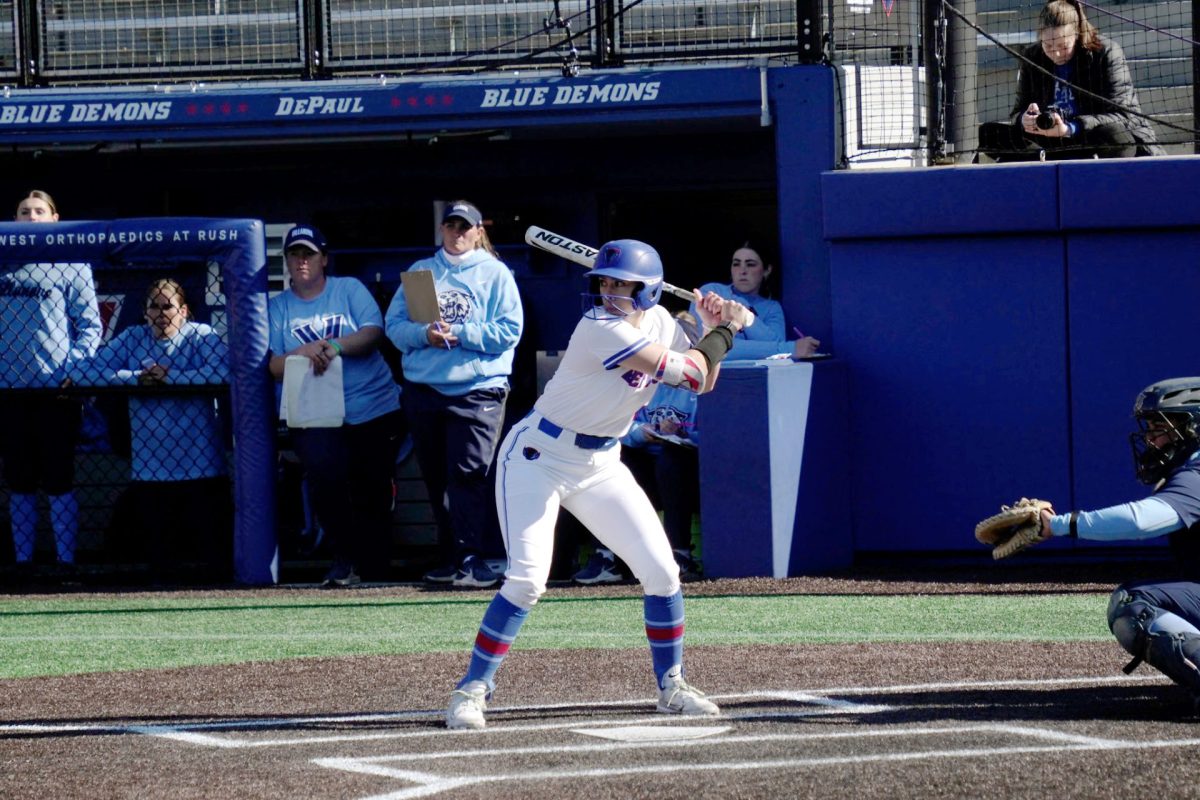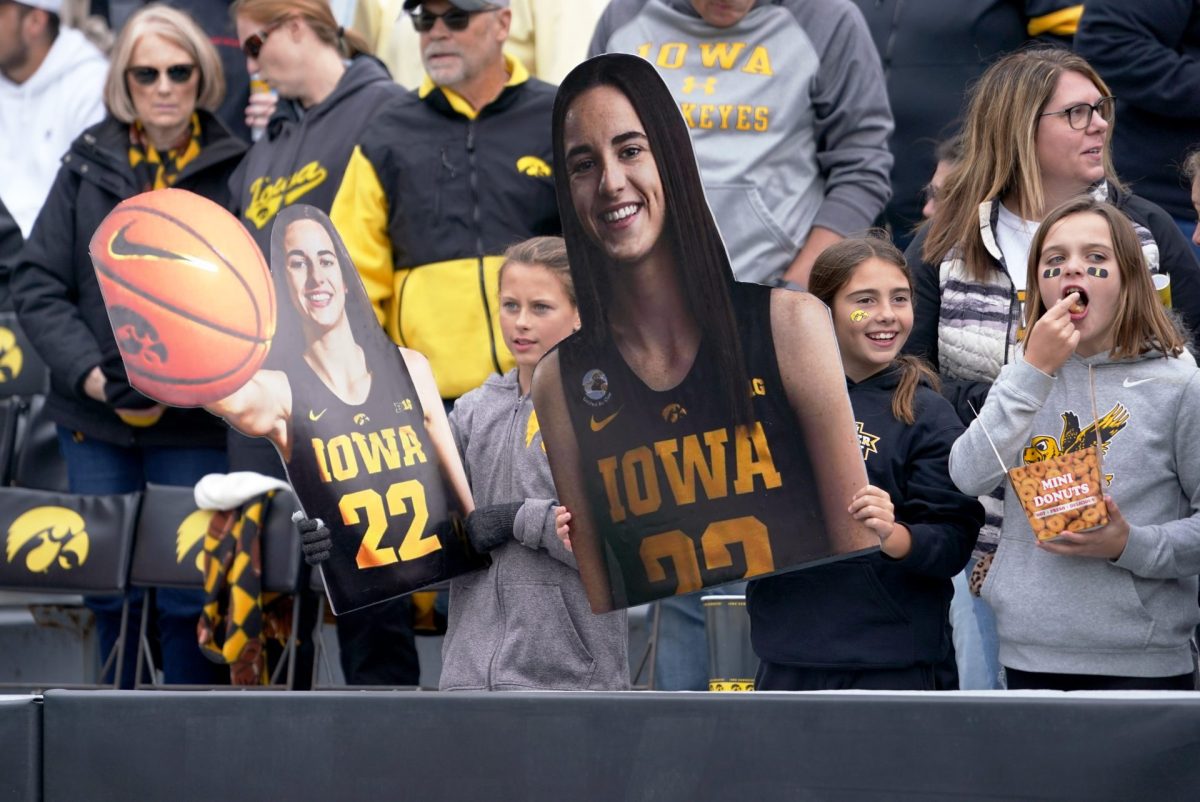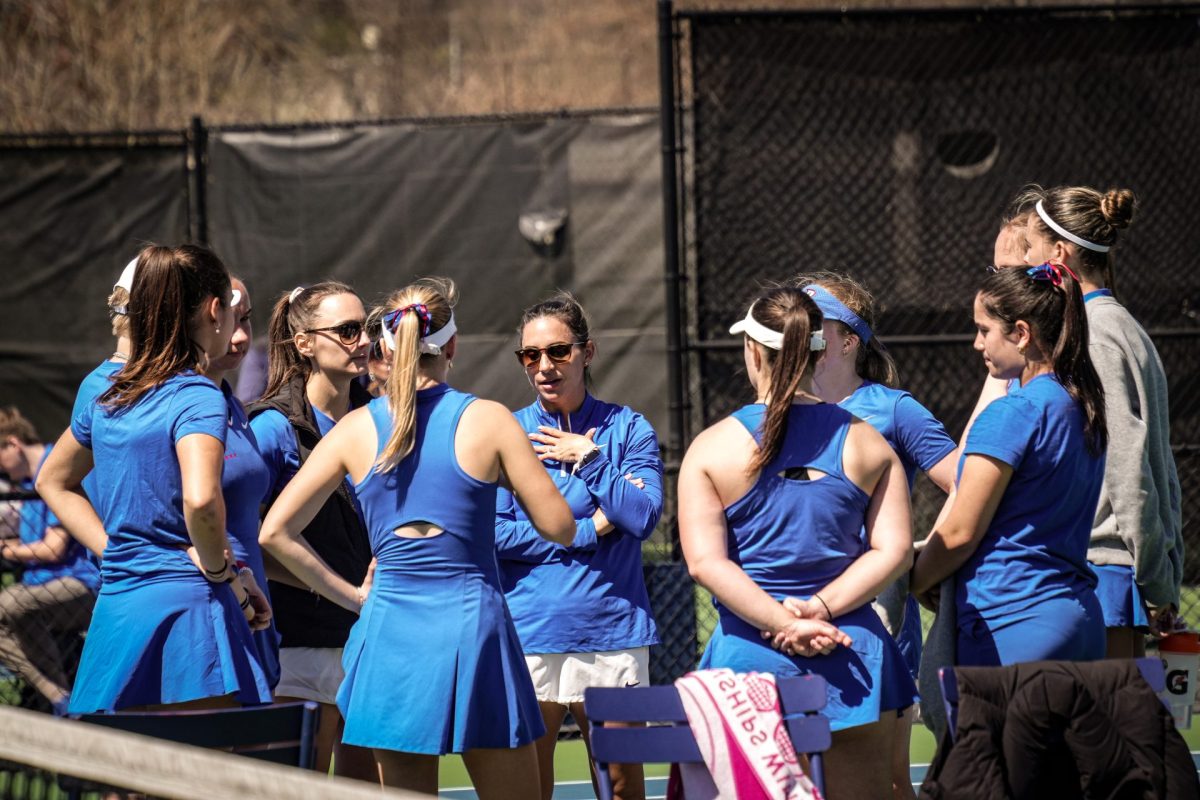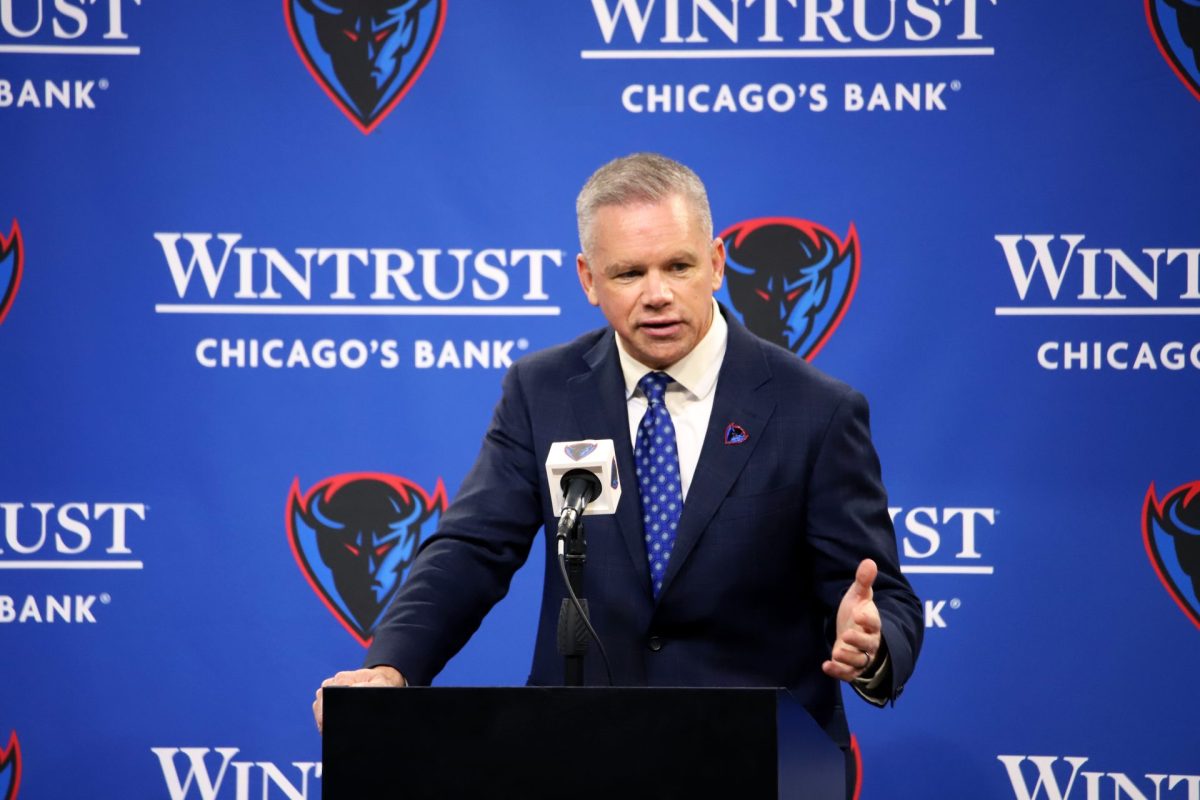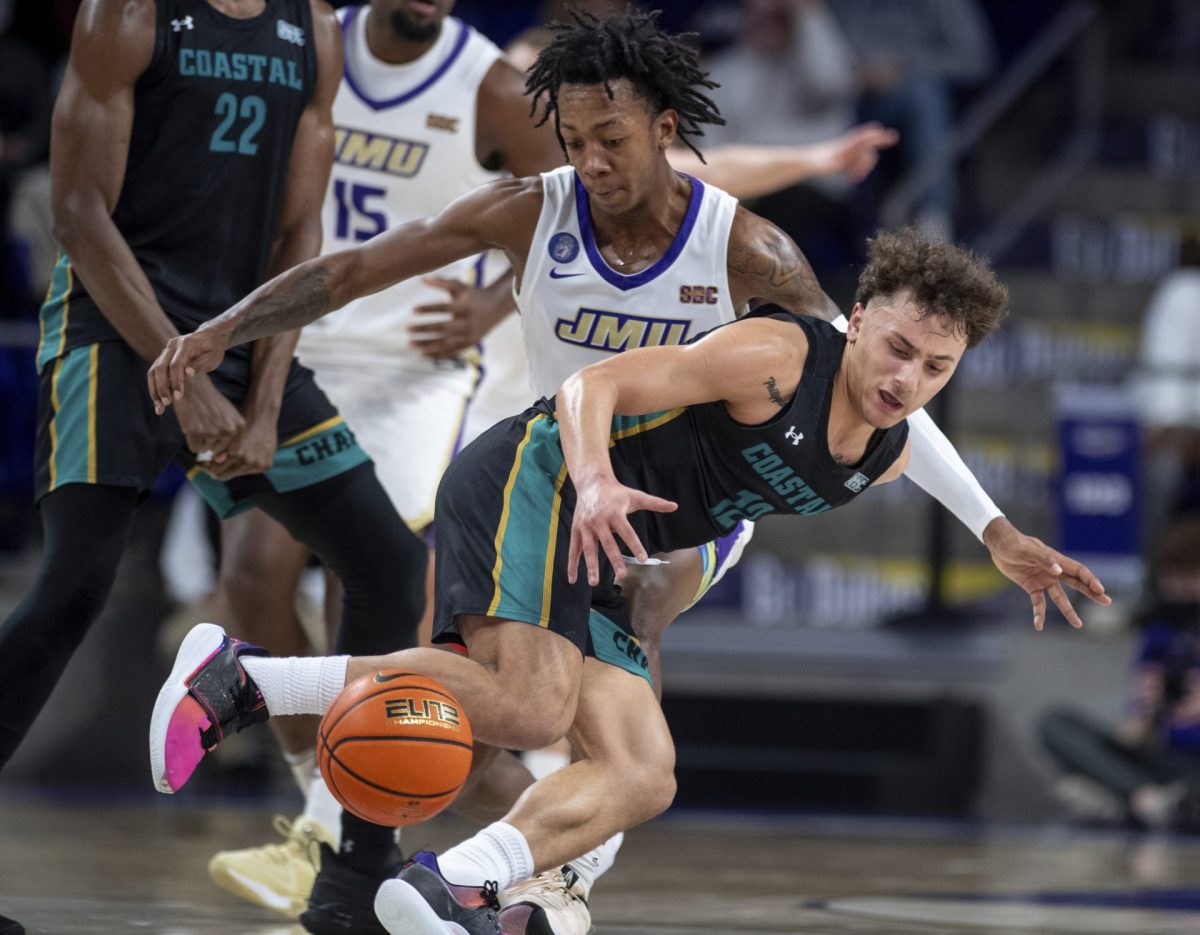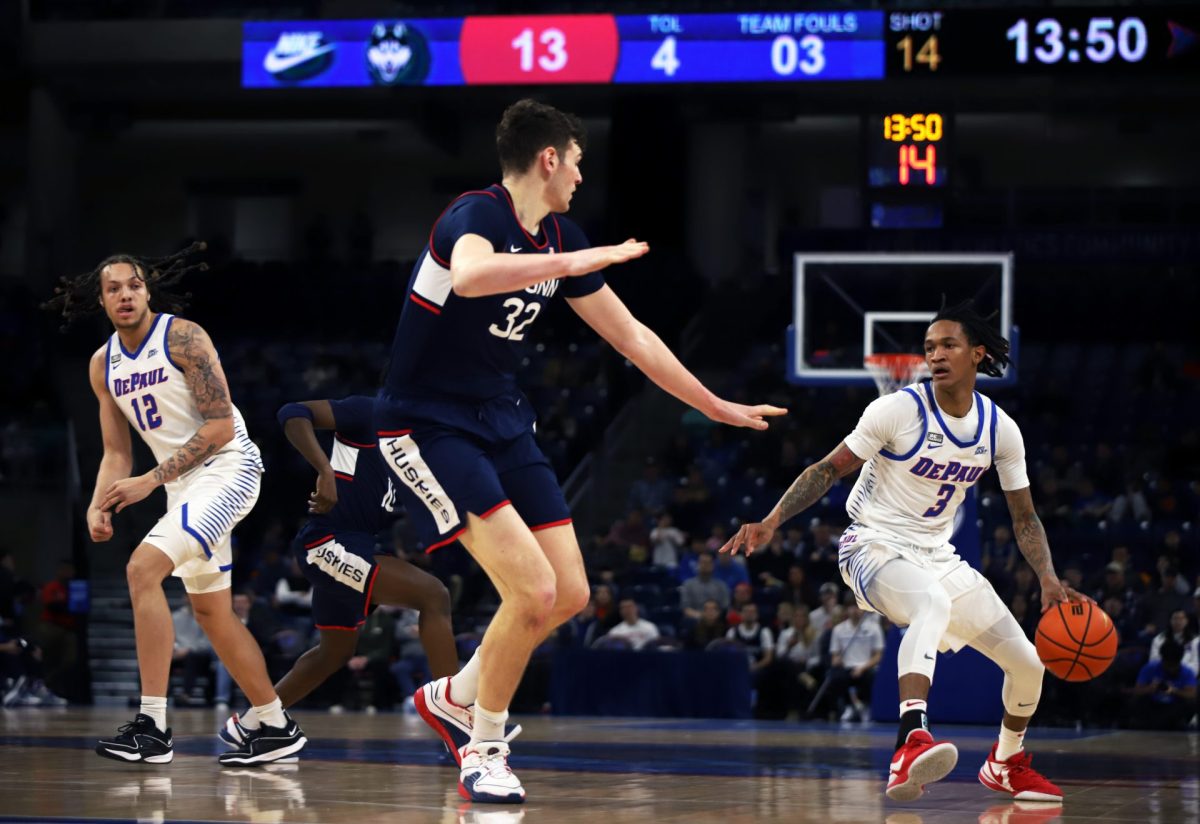Your body is your temple. It’s an oft-repeated phrase by those dedicated to maintaining a healthy constitution, or even as a mantra for those looking to lose some weight and keep it off as a New Year’s resolution.
Yet perhaps no group of people takes it more to heart than athletes, whose bodies are the bare necessities of their craft. Preserving their health and physique allows athletes to compete to their fullest potential in their respective sports, to which a balanced diet plays an integral part.
“Your body’s like your engine,” said DePaul softball head coach Eugene Lenti. “You’ve got to put the right fuel in it if you’re going to get the right kind of performance.”
With spring sports teams at DePaul either nearing their conference tournaments or having already completed them, coaches and athletes are paying close attention to their food consumption in relation to their workouts.
“We encourage good eating habits and we go out to restaurants where we pretty much want them to eat as healthy as they can,” said Lenti. “But we’re working them pretty hard and they’re burning off enough calories. We encourage them to ‘eat the rainbow’ – get their fruits, veggies and protein. Moderation and control are some things we talk about all the time.”
One source of food, perhaps the most readily available and recognizable on campus, is DePaul’s Student Center. Housing a range of culinary selections, from a salad bar to fried food grill, the Student Center is where athletes – many of them living on campus – will often go for meals in between training.
To meet athletes’ dietary needs, DePaul’s dining service Chartwells works in conjunction with a number of teams to provide balanced practice or pre-game meals. For the men’s basketball team, for instance, fresh fruit is provided during breakfasts, while lunches and dinners will include whole muscle protein, vegetables, starch and carbohydrates.
James Lee, Chartwells’ director of operations at DePaul, talked about the many initiatives Chartwells’ has pushed forward in its “Higher Education” plan. New recipes and an expanding catalog of menu options now make use of local, organic produce, hormone-free pork; antibiotic-free poultry; and cage-free eggs, to name a few.
“A good majority of the things we use is all fresh,” said Lee. “Back in the day, there was always that misconceived notion that you don’t know what you’re eating. None of that exists too much anymore.”
Given the improvement of Chartwells’ food nutritional value, athletes like Jackie Kasal and Chris Miedema, members of the track and field team, can eat their above average intake of calories without worrying about the food’s content.
“I tend to stay away from junk food,” said Miedema, junior, a self-described “health nut.” “For breakfast, I’ll have toast and tea. Lunch, I’ll have soup or a tuna sandwich. For dinner, I always make sure I have protein, carbohydrates, so I’ll have spaghetti or potatoes or something with high carbs.”
Miedema, a member of the men’s cross country team, keeps white meat on his dietary agenda – with the occasional steak – along with helpings of vegetables, including his favorite of broccoli.
“I don’t have too sensitive a stomach, so I’ll eat a whole meal like a sandwich before practice,” said Kasal, a sophomore and dual-sport athlete like Miedema. “If it’s just an easy run, I’ll eat a half hour before practice. I definitely have breakfast, it’s important to start the day off right. So I’ll usually have a granola bar, cereal and milk or a yogurt. The athletic center provides bagels and fruit, which is awesome, so athletes can always grab that. For dinner, I usually go to the caf’s (student center) pasta area and I get starch, carbs, meat, vegetables.”
Kasal said both teams’ coaching staffs care a great deal about the athletes’ diet. During the cross country season, male and female runners met individually with a nutritionist to recommend what best suits their system. According to Lenti, the softball team does the same.
“We’ll talk about what’ll help us recover, what’ll get us ready for the next workout,” said Miedema.
In addition to knowing what foods are best to eat, athletes have also become accustomed to when to eat and in what quantity.
“Even though running on a full stomach is hard, I definitely make sure I eat somewhat of a meal at least two hours before workouts,” said Kasal. “You can’t just run on an empty stomach, it would be even worse. You definitely need something in your system or you’re just not gonna have any energy at all.”
Portion control and eating a balanced diet are names of the game, crucial for athletes to stay in peak physical condition. With mindful coaches and healthy dining options right on campus, these athletes can fuel and refuel to their bodies’ desire.
“Particularly with athletes, it’s up to their coaches to make sure they’re eating healthy,” said Lee. “Are you going to prevent them from going out to McDonald’s and eating? No, you can’t. But we can do our best to make sure to rotate the menus around and give students options of being able to eat healthy. Our goal here is to have those options available and inform them.”


